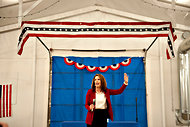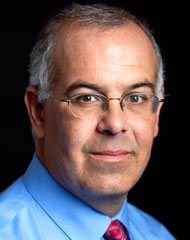Rutashubanyuma
JF-Expert Member
- Sep 24, 2010
- 219,470
- 911,172
[h=1]Attack on Mitt Romney's Mormon faith heightens Republican rivalry[/h] Presidential candidates clash over religion after evangelical pastor calls Mormonism a 'cult' in run-up to debate on Tuesday
- Ewen MacAskill in Washington
- guardian.co.uk, Sunday 9 October 2011 20.27 BST Article history
Mitt Romney, the Republican presidential candidate whose Mormon faith was branded a cult by US pastor Robert Jeffress. Photograph: James Leynse/ James Leynse/Corbis
They have crossed swords over immigration, the economy and social security, but this weekend the leading candidates for the Republican presidential nomination clashed on religion, after the pastor of one of America's largest evangelical mega-churches challenged frontrunner Mitt Romney's Mormonism.
Robert Jeffress was unrepentant on Sunday after portraying Mormonism as a cult and urging Republicans to vote instead for "a Christian candidate". Jeffress is a close ally of Romney's main rival, Rick Perry, the governor of Texas.
Religion was always going to play a part in the Republican nominations for a presidential candidate to take on Barack Obama for the White House in November next year. But Jeffress has pushed the issue to the fore earlier than expected, with the first of the Republican nomination caucuses not scheduled until January 3 in Iowa.
The faith row overshadowed a right-wing conference in Washington DC at the weekend in which all the Republican candidates spoke, as well as Jeffress. Issues such as the faltering economy, immigration and abortion were drowned out by discussion of Romney's faith.
The main beneficiary of the row could be Perry, who once said that anyone who does not believe in Jesus will go to hell. He and Jeffress organised a day of prayer in Houston, Texas, in August that attracted about 30,000 people.
Perry jumped to the top of the Republican polls after joining the race in August, but he slumped after two poor debate performances and he needs a fillip.
Christian evangelicals make up an estimated 40% to 60% of Republicans likely to vote in states such as Iowa and South Carolina, which is scheduled to hold its primary on 21 January. A Washington Post poll in June found that 21% of Republican-leaning voters nationwide would be less likely to vote for a Mormon.
In the 2008 Republican presidential race, the then candidate Mike Huckabee played the religion card, saying "Don't Mormons believe that Jesus and the devil are brothers?" He went on to beat Romney in Iowa, in spite of a huge investment of money and resources by Romney in the state.
Perry's campaign team, distancing itself in public from Jeffress, said the Texas governor did not regard Mormonism as a cult and did not judge people's religion. "That is God's job," his campaign spokesman said.
Other presidential candidates were outspoken about Jeffress. Newt Gingrich, the former House Speaker, told CBS on Sunday that no-one should judge another's religion. "I thought it was very unwise and very inappropriate," Gingrich said.
Another contender, Herman Cain, the businessman enjoying a surge in the polls, told CBS: "I believe that they(Mormons) believe that they're Christians, based upon their definition. But getting into whether or not they are more Christian than another group, I don't think that's relevant to this campaign."But Jeffress stood by his comments. He said: "I do believe Mormons are good, moral people, but they have never been considered part of mainstream Christianity. Mormonism was invented 1,800 years after Jesus Christ and the founding of Christianity, and has its own founder, Joseph Smith, its own set of doctrines and its own book, the Book of Mormon. And that by definition is a theological cult, that's all I'm saying."
He said he believed religion would play a part the battle for the Republican nomination and expressed a hope it would be discussed "in a sane, rational way".
He insisted he had not discussed Mormonism with Perry before introducing him on the platform at the conference.
Jeffress said that while he would choose a Christian over a non-Christian in the Republican race, he would probably vote for Romney if it was a choice between him and Obama.
Romney, who also spoke at the conference on Saturday, denounced "poisonous language" and called for "civil and respectful debate" in comments aimed at another speaker, radio host Bryan Fischer but that may also have been a warning shot to Perry.
Fischer, a director of the American Family Association who has made anti-Mormon comments in the past as well as attacking gay people and Muslims, spoke after Romney. He said: "The next president of the United States needs to be a man of sincere, authentic, genuine Christian faith." The row over religion comes on the eve of the Republican presidential debate scheduled for Tuesday. Perry needs a strong performance.
In spite of his drop in the polls, his campaign last week posted its fund-raising figures for the third quarter, a formidable $17m that will help pay for a media blitz in the early caucus and primary states.
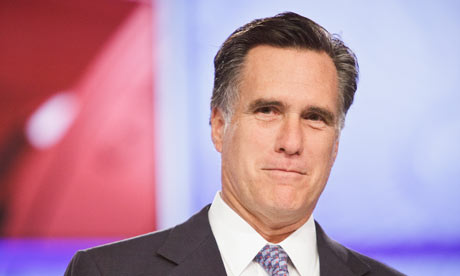

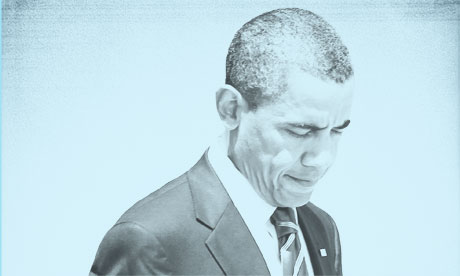
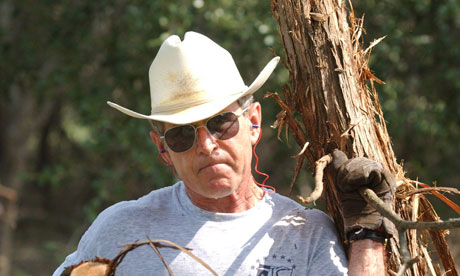
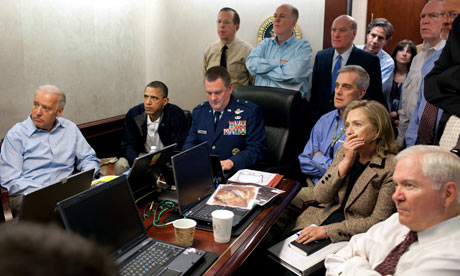

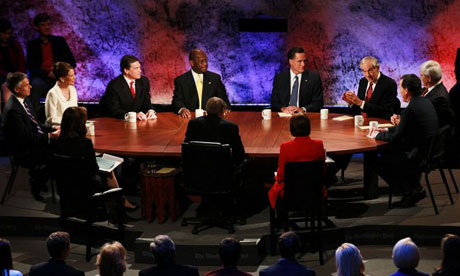
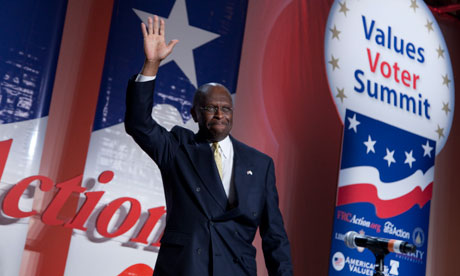
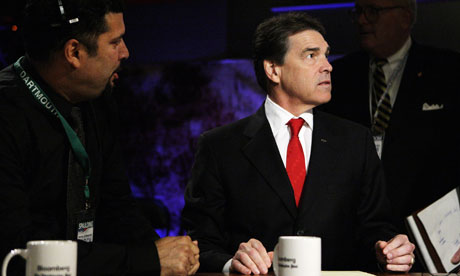
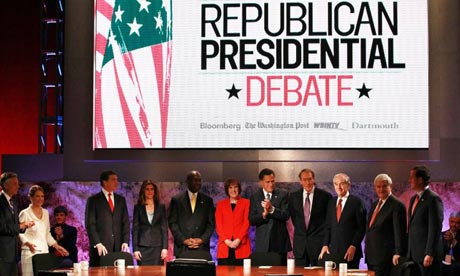
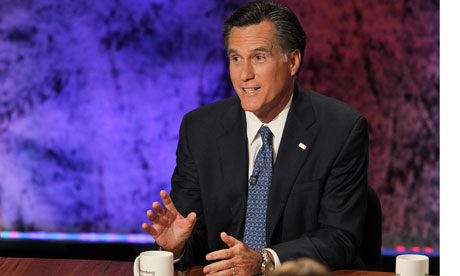


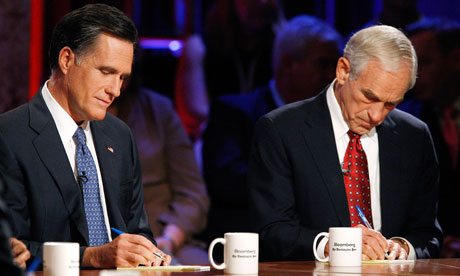
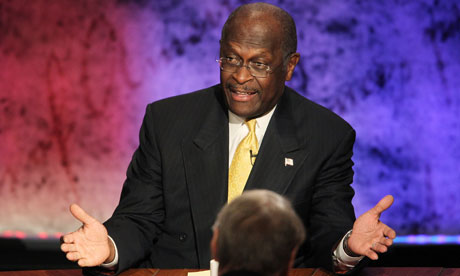
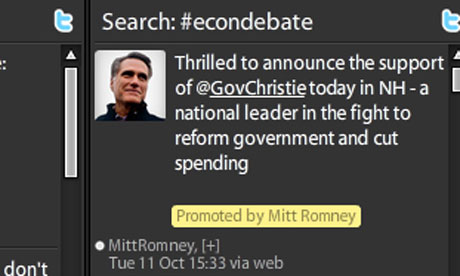
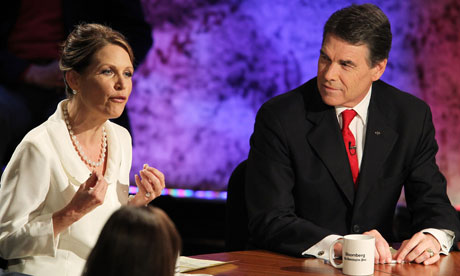

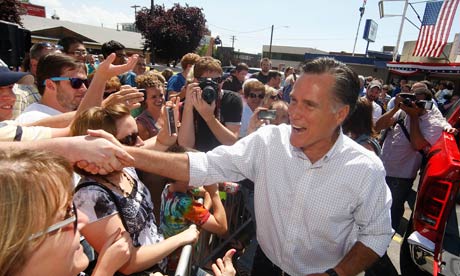
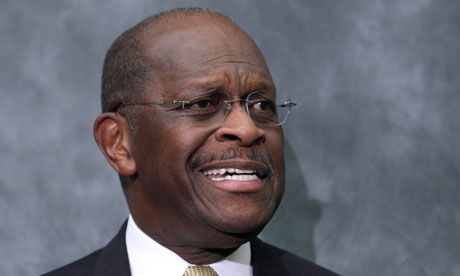
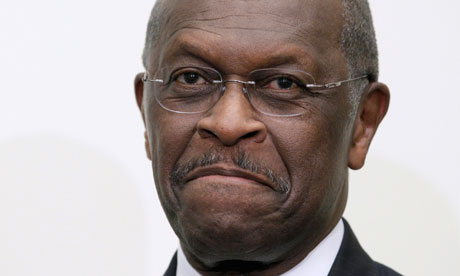
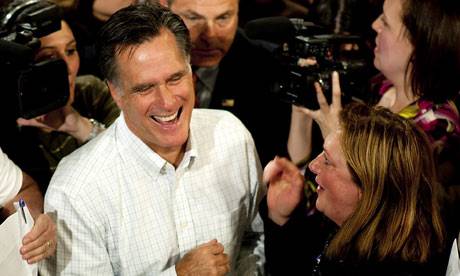
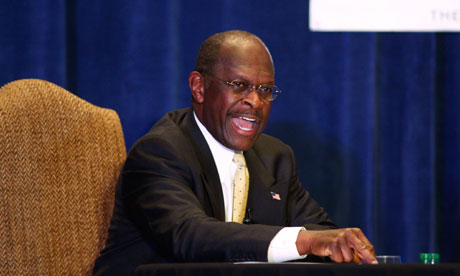

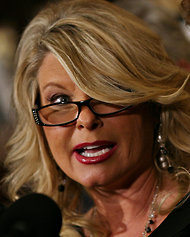

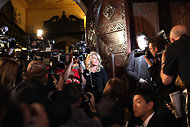
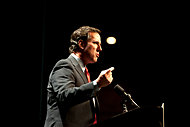
 Interactive Feature
Interactive Feature 
